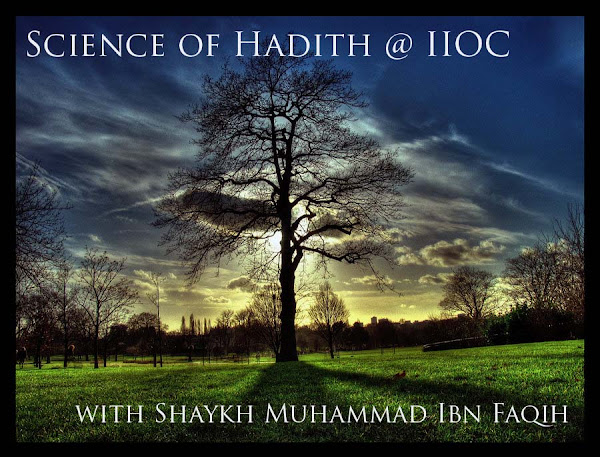Etiquette of Student of Knowledge
- Following the prophet intention / Sincerity
Allah (swt) says, “You were not commanded except to worship Allah sincerely…”
Hadith “Verily actions are judged by their intentions…”
Abu Hurayrah (Muslim): I heard the Prophet (saws) say, “The first three types of people with whom Hellfire will be kindled will be: (1) person who sought knowledge…”
à Knowledge should be sought for the sake of Allah (swt).
Abdullah ibn Mubarak, “We sought knowledge for other than Allah but it refused to be for other than Allah.” à knowledge of the din will help you purify your intention
- Following the proper methodology
Ibn Mubarak says, “The first step in seeking knowledge is purifying the intention, then comes listening (with proper etiquette), then comes comprehension, then comes memorization, then comes implementation, then comes spreading that knowledge.”
- Following the proper manners
Sufian al-Thawri said, “They would not let their kids go and learn until they teach their kids the proper adab.”
Imam Malik said, “His mother used to dress him up and go learn from Rabi`ah (greatest scholars of his time) and to learn from his adab before his knowledge and his hadith.”
Ibn Mubarak said, “I sought adab 30 years and I sought knowledge for 20 years.”
- Part of adab is showing dedication and commitment. When you dedicate time to seeking knowledge, that specific time is sacred for the sake of Allah (swt).
- `Ubaydillah ibn `Umar said, “If `Umar saw how you are seeking knowledge these days and how you behave, he would have beaten you.”
- Lowering the standards is not the solution because lowering the standards also lowers expectations.”
- “Fa idha faraghta fansab…” à “And if you are done, then get up (and do something)”
- Implementation of the knowledge
Surat al-Saff Verse 2 “Why do you say that which you do not practice?”
Prophet (saws) said, “The man will come on the Day of Judgment and will be thrown out of Hellfire and his internal organs will come out of him and he will start walking around his organs (on the ground). People of hellfire will come out and ask why he’s doing so. They said, “Weren’t you the one who used to tell us to do good?” He said, “Yes, but I used to tell you to do good and not do it, and I would warn your from things and do them.”
- On the Day of Judgment, we will be asked about the knowledge and what we did with it.
- Du`a’
- Allah (swt) says, “Say Oh My Lord, increase me in knowledge.”
- Prophet (saws) taught us to say, “Oh Allah I ask you to give us beneficial knowledge…”
- Notes taken by Mohammad Mertaban -

3 comments:
Jazakum Allahu khayran for setting up this blog! Can we have some people volunteer to do taHqeeq on each post? If we are saying Allah (swt) says or the Prophet (saws) says we better be sure (especially on the wording/translation)! Maybe we can rotate or something? Or maybe just a disclaimer? Or maybe remove the quotations?
That's an awesome idea, please go ahead and organize that by editing the current post and sending it to me - i can then go ahead and repost with corrected information.
Keep the feedback coming in sha' Allah :)
Homework #1
HADITH: “The differing amongst my Ummah is a mercy”
REPORTED BY: No isnad
COLLECTED BY: Not known by the scholars of hadith
AUTHENTICITY: There is no isnad, therefore this is not a hadith. (we cannot / do not determine the authenticity of a statement that is not a hadith)
SOURCES OF INFO:
“An Introduction to the Science of Hadith” by Dr. Suhaib Hasan
http://www.islamicawakening.com/viewarticle.php?articleID=73&pageID=342&pageID=352&
confirmed by: http://muttaqun.com
There is also an article by Shaykh AbdAllah Bin Bayah (ha) - "Is Differing A Mercy?" which goes into more detail and documents some sources of the hadith - it's posted at the following website - http://talk.islamicnetwork.com/showthread.php?t=11988.
Post a Comment